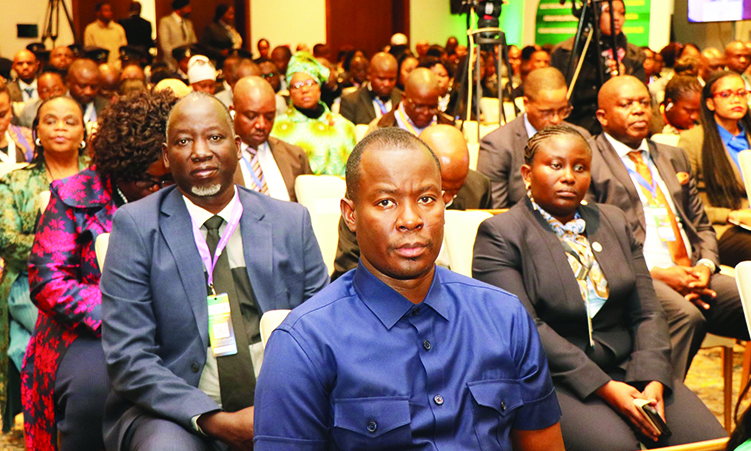Popular Democratic Movement (PDM) member of parliament (MP) Vipua Muharukua is calling for the establishment of a Southern African Development Community (SADC) joint agricultural development plan.
This, he says, is needed if the region is to establish some form of cohesion in its quest to ensure food security and poverty alleviation.
Muharukua was speaking at a Southern African Development Community Parliamentary Forum (SADC-PF) gathering in Tanzania this week.
He called on member states to evaluate their respective strengths and weaknesses, and to complement each other where necessary.
“As SADC and African nations, we should come to a decision to have a joint agricultural development plan. But our plan should go beyond that and look at the infrastructure.
“For example, how do we ensure that once we have the fresh produce, we are able to trade effectively and efficiently with one another in a faster and cheaper way,” Muharukua said.
He mentioned the railway line between Zambia and Tanzania, and said similar developments in the region could make trading with one another in terms of agricultural produce efficient.
“Let us look at continents. For example, the movement of people between Britain and mainland Europe is made possible by the fast-moving train.
“Our plan as Africa and the SADC should go beyond what we aim to do with our land to how we should ensure that we jointly build the region,” he said.
Muharukua serves in the SADC-PF standing committee for trade, industry, finance and investments.
The committee deals with matters related to economic cooperation, industry and trade, mining, finance and investment and regional integration and infrastructure development.
GOVT ACTION NEEDED
While Muharukua’s call for the reduction of trade barriers as a way of promoting integration at regional level sounds like a noble cause, it is the domestic market that needs to be strengthened and protected, according to the Namibia Agronomic Board (NAB).
Speaking to The Namibian yesterday, the NAB’s general manager for agronomy and horticulture market development, Gilbert Mutonda said the SADC market is far from being integrated as dominant forces prevail, as such preventing other countries from successfully nurturing and establishing their own domestic markets.
“In short, the playing field is not levelled. Especially in crop production, we still have one dominant player which is South Africa, with an industry over a century old.
“One cannot compare that to our Namibian sector, which only gained momentum in 2005,” he said.
Mutonda said as a result of their level of efficiency and economies of scale, most countries in the region import their agricultural produce from South Africa.
Worse still, Namibian farmers are net importers of “everything” among the biggest of which are fertilisers and even labour, he said.
“When you go to most of these farms you realise that most of the people running their commercial arms are non-Namibians.
“Also, producers in other countries are subsidised when it comes to crucial services such as electricity, whereas in Namibia – where the tariffs are the highest – there are no subsidies from the state,” Mutonda said.
He said unless there is some deliberate action from the government in terms of assisting the sector through cost-cutting measures and industrial protection, realising the dream of having a fully fledged industry would remain an elusive goal.
Stay informed with The Namibian – your source for credible journalism. Get in-depth reporting and opinions for
only N$85 a month. Invest in journalism, invest in democracy –
Subscribe Now!










